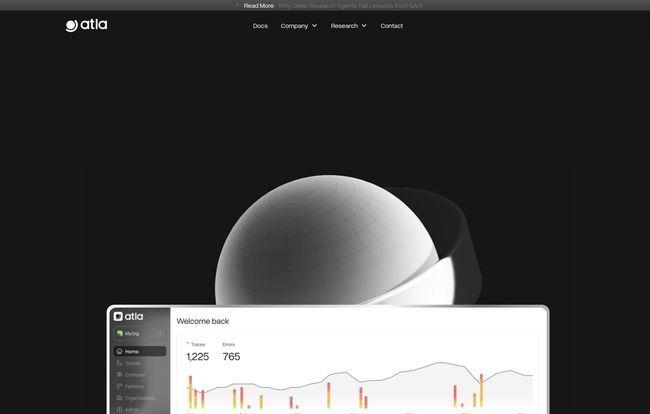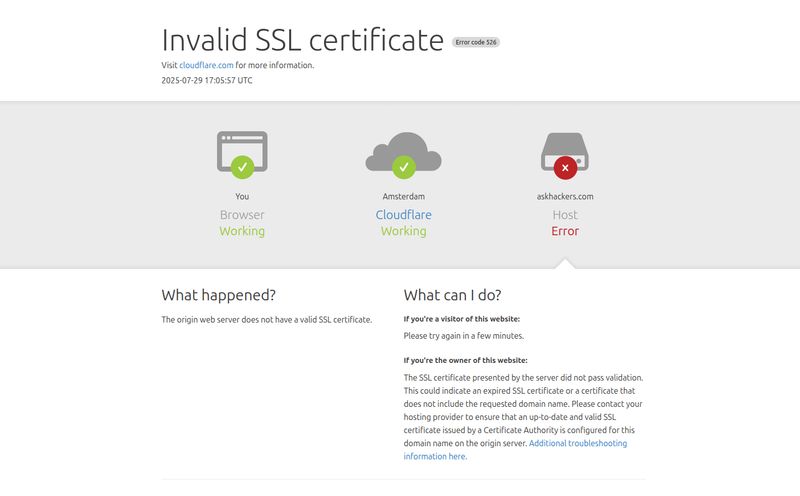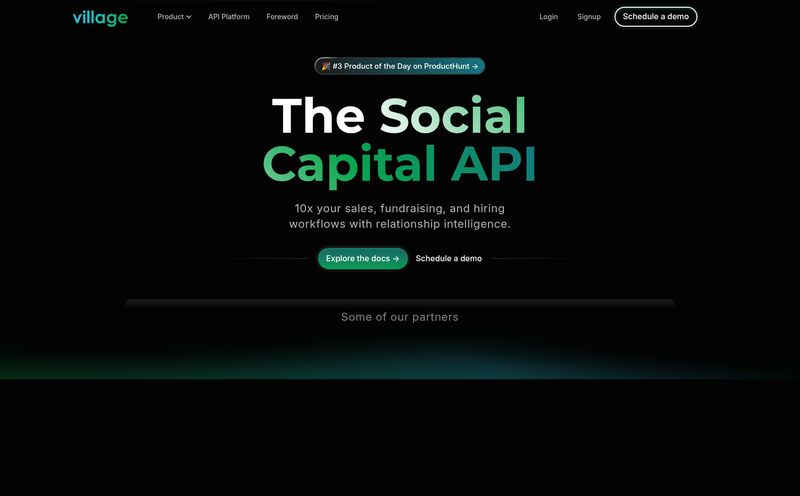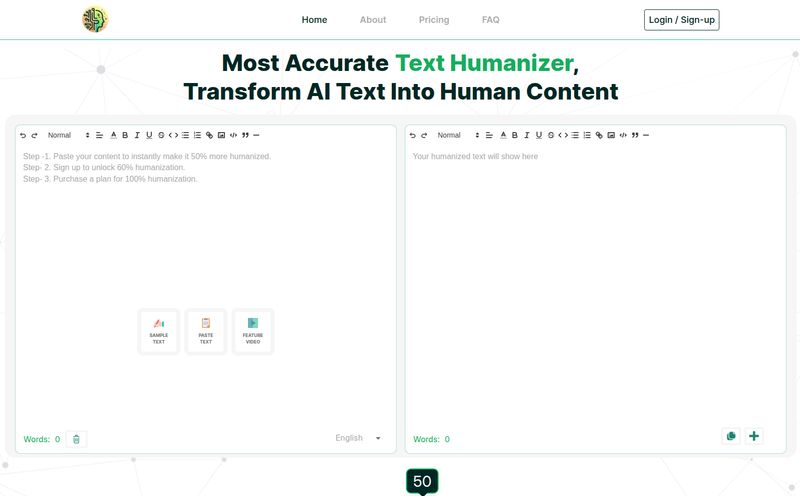We’ve all been there. You spend weeks, maybe months, coaxing a generative AI application into existence. It works beautifully on your test cases. You show it to your team, and everyone’s excited. Then you release it into the wild, and... well, it starts saying weird things. It gets stuck, hallucinates a fact about a 19th-century platypus-herding competition, or just gives a completely tone-deaf response to a customer.
The honeymoon phase is over. You realize that building with LLMs is one thing; making them consistently reliable is another beast entirely. Manual testing is a soul-crushing time sink, and you can never check enough examples. How do you actually scale quality control for something that's, by its nature, unpredictable?
I've been kicking the tires on a lot of tools that claim to solve this, and honestly, most of them are just fancy dashboards. But recently, I stumbled upon a platform called Atla, and it feels... different. It’s not just about monitoring; it’s about judging. And that might be the shift in mindset we all need.
What Exactly is Atla? (And Why Should You Care?)
At its core, Atla is an AI evaluation platform. But that's a bit of a dry description. Think of it less like a dashboard and more like an expert sparring partner for your AI. Its whole philosophy is built around a concept they call “LLM-as-a-Judge.”
Instead of you, a human, having to manually read through thousands of AI outputs to see if they’re good, Atla uses its own highly-tuned AI models to do the grading for you. These aren't your standard, off-the-shelf models. They are specifically trained for the task of evaluation. It’s designed to find and fix the mistakes your generative AI makes, so you can build applications that people can actually trust.
It’s a simple but powerful idea. You're using a specialized AI to check the work of your generalist AI. This is how you move from a cool tech demo to a production-ready application that doesn't become a liability.

Visit Atla
The Core Features That Actually Matter
Okay, so the concept is neat. But what are you actually working with? I’ve found a few features that really stand out from the usual marketing fluff.
Selene: Your In-House AI Performance Critic
The engine behind Atla’s judging capability is a family of models they’ve named “Selene.” This is the secret sauce. From what I can gather, Selene models are optimized for one thing: providing precise, fast judgments on AI performance. This isn't just about whether an output is factually correct, but about its tone, relevance, clarity, and whatever other custom metrics you care about. It’s the difference between asking a random person on the street if your article is good versus handing it to a professional editor.
Actionable Critiques Not Just Pass/Fail Grades
Here’s what really got me. Most evaluation systems I’ve seen give you a score. A 7/10. A 92% accuracy. That’s... fine? But it doesn’t help you fix the problem. You know something is wrong, but you don't know why.
Atla gives you actionable critiques. It doesn’t just say “This response was bad.” It says, “This response was bad because it was too verbose and failed to directly answer the user's core question.” Now that is something a developer can work with. You can use that feedback to tweak your prompt, fine-tune your model, or adjust your retrieval-augmented generation (RAG) system. It turns a mystery into a to-do list.
The Eval Copilot and Customization
Every AI application is a unique snowflake. The criteria for a good legal summary bot are wildly different from those for a friendly, brand-voiced chatbot. Atla seems to get this. Their Eval Copilot (which, full disclosure, is listed as being in beta) is designed to help you create custom evaluation criteria tailored to your specific use case. This is huge. It means you’re not stuck with generic metrics that don’t really reflect what “good” means for your product. It shows they're building for real-world complexity, which I appreciate.
Let's Talk Turkey: The Atla Pricing Model
Alright, let's get to the question everyone secretly scrolls down for first: how much does it cost? AI tools can have some notoriously opaque and scary pricing tiers, but Atla is surprisingly straightforward. I've broken it down into a simple table.
| Plan | Cost | Best For |
|---|---|---|
| Free | Free. Includes 1,000 Selene calls or 3,333 Selene Mini calls per month. | Developers and small projects wanting to test the platform. |
| Pro | Pay-as-you-go after free credits. $10 per 1,000 Selene calls, $3 per 1,000 Selene Mini calls. | Startups and teams with AI applications in production. |
| Enterprise | Scalable pricing (contact them for a quote). | Larger teams needing advanced security, support, and deployment options. |
My take on this? I actually love this pricing structure. The free tier is not a joke; 1,000 high-quality evaluations a month is more than enough to integrate Atla into your CI/CD pipeline for testing or to run a solid pilot. The Pro tier’s pay-as-you-go model is a godsend for startups who can't commit to a massive monthly subscription. It scales with your usage, which is fair. Yes, it can get expensive if your volume explodes, but at that point, your AI app is probably making you money anyway. It's a good problem to have.
My Experience: The Good, The Bad, and The... Beta
After playing around with the API, I have some thoughts. The accuracy of the evaluations is genuinely impressive. It caught subtle regressions in prompt updates that my team and I had completely missed during our manual reviews. The API is clean and the documentation is what you’d expect—clear enough for any competent developer to get up and running quickly. The promise of plugging it into your existing stack in minutes seems to hold true.
However, it’s not a magic wand. You need to have a clear idea of what you're evaluating. This tool empowers developers, it doesnt replace them. It's built for people who understand their models and prompts and need a better way to test them at scale. Also, the fact that some key features like the Eval Copilot are in beta means you might encounter some rough edges. It’s a platform that's clearly growing, not one that’s been sitting static for years.
Who is Atla Actually For?
So, should you drop everything and sign up? Maybe. It depends on who you are.
This is a perfect fit for:
- Startups building GenAI products. You need to be able to iterate fast without breaking things. This is your safety net.
- Product teams struggling with quality control. If you're constantly getting bug reports about your AI's weird responses, this is for you.
- Engineers who are tired of manual testing. If you want to automate evaluation and integrate it into your development lifecycle, this is a no-brainer.
This might not be for:
- Total beginners or hobbyists. It requires API integration, so you need some technical chops.
- Massive corporations with established, in-house MLOps teams. They might have already built something similar (though I bet Atla's Enterprise plan would still be of interest).
Answering Your Burning Questions About Atla
How is Atla different from just using GPT-4 to evaluate my outputs?
That's a great question. While you can use a general model like GPT-4 for evaluation, it's not its primary job. Atla's Selene models are purpose-built for evaluation, making them faster, more consistent, and often more accurate for identifying specific types of failures. It’s about using the right tool for the job.
Is it difficult to integrate Atla into my workflow?
In my experience, no. If you're comfortable with calling a REST API, you'll be fine. They provide an API key and you can start sending evaluation requests pretty much immediately. It’s designed to fit into existing CI/CD pipelines or testing frameworks.
What kind of “actionable critiques” does it give?
It goes beyond a simple score. For example, it might identify if a response is 'unhelpful', 'factually incorrect', 'contains sensitive information', or 'violates a custom guideline' you set up, like maintaining a specific brand voice.
Can I use Atla to test my prompts?
Absolutely. In fact, that's one of the best use cases. You can run an A/B test on two different prompts against a set of test cases and use Atla's scores and critiques to definitively prove which one performs better and why.
Is the free tier really enough to get started?
Yes. 1,000 API calls (or over 3,000 for the Mini model) is plenty to run several comprehensive test suites, integrate the tool into your staging environment, and get a very real feel for its capabilities before paying a dime.
My Final Verdict on Atla AI
After spending some quality time with Atla, I’m optimistic. For years, the AI space has been obsessed with building bigger and more powerful models. What we've been missing is an equally powerful set of tools for discipline, quality, and reliability. We can't build the future on shaky foundations.
Atla feels like it’s providing some much-needed concrete. It’s a practical tool for a practical problem. It’s not selling a vague dream of AGI; it's selling a way to make your current AI application not suck. And in the world of real products and real customers, that’s infinitely more valuable.
If you're building with generative AI and you're serious about its quality, you should at least give their free tier a spin. It might just be the AI judge you’ve been looking for.
Reference and Sources
- Atla Official Website: https://www.atla-ai.com/
- Atla Pricing & Sign-Up: https://www.atla-ai.com/sign-up-waitlist



